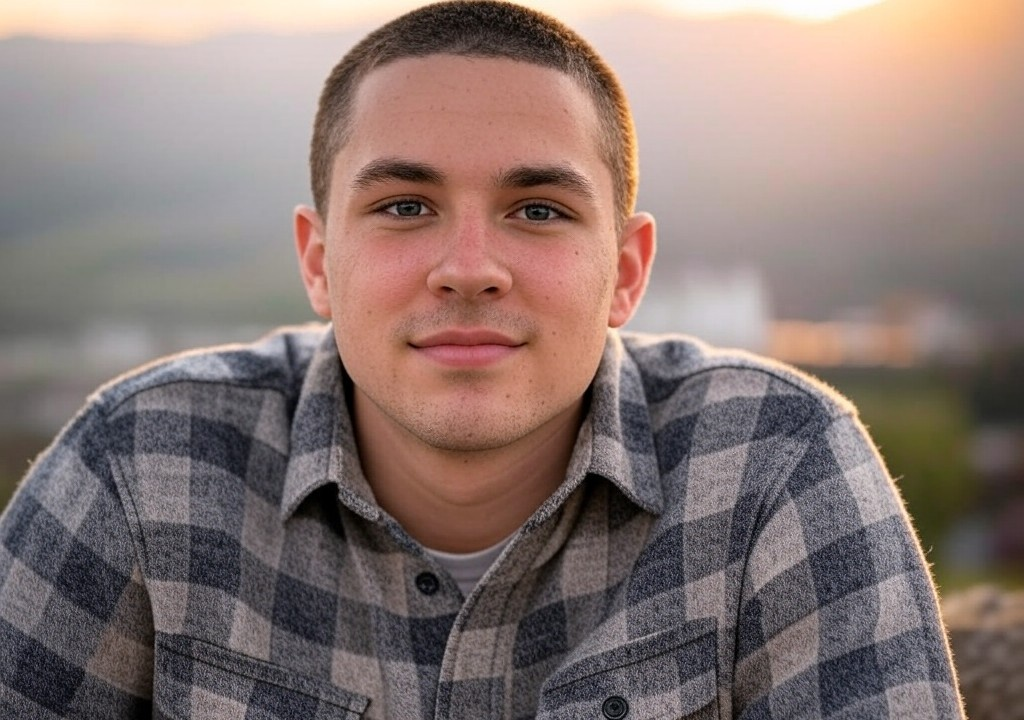The Secret War Between My Faith and My Feelings
When you grow up in a family that balks at the word “crush” like it’s a four-letter obscenity, contentment can sometimes feel like it’s supposed to come in a nicely packaged script—one you don’t dare deviate from. Childhood sweetness? A spiritual siblinghood that would surely bear fruit in some starry-eyed marriage after a first date at 21. Attraction? Save it for the wedding day, Caleb. And let’s not even get started on the messier stuff like doubt, desire, or, God forbid, longing.
You see, for years, I had a secret—a battle I waged in the quiet trenches of my mind. It wasn’t between good and evil exactly, but between two deeply embedded parts of myself that I didn’t know how to reconcile: my faith and my feelings.
I’m not talking about wild escapades or a forbidden relationship with some elusive romance-novel heartthrob. I’m talking about the gnawing question of whether I deserved love—if the authentic, messy, emotionally vulnerable version of me could have it or if I would forever remain, as Tina Fey might say, a “surprise sad virgin.”
I didn’t tell anyone. Not my family. Not my friends. Certainly not the well-meaning ward elders who often asked with a cheery smile, “So, who’s the lucky girl in your life these days?” If they only knew, I thought, how sorely I had fumbled my way through the field of connection and romance just to wind up sitting on the sidelines.
It felt like a secret no one could relate to, except maybe other underdogs of love who silently felt like they were doing it all wrong. But today, we’re breaking that silence.
The (Unintentional) Drought of Dating
It wasn’t until I entered college that the war within me really gained momentum. See, in a culture that strongly encourages marriage as a rite of passage—particularly young marriage—it’s easy to feel irrelevant every time a roommate returns from a second date ready to plan an inventive proposal.
Meanwhile, I was just out here, blundering through the basics with the charm of a wet napkin. I hadn’t grown up with a natural understanding of how to navigate dating, either. (Do you tell someone you like them with a thrilling gesture, or by nervously quoting F. Scott Fitzgerald? Asking for a friend.) Faith told me I’d find my person if I prayed, showed virtue, and stayed patient. My heart sang a chorus of “But when?” like it was auditioning for "Les Misérables."
By age 25, I had developed the habit of quietly exiting conversations whenever the topic of relationships came up. Evasion had become my survival tactic. Better to stay hidden than to confess to my peers—married, partnered, or perennially single—that I didn’t have answers.
Why I Hid the Struggle
If you’ve ever been the last person chosen for a team sport—and don’t lie, you have—then you understand. The worst part isn’t the picking order. It’s the look on people’s faces when they finally choose you, that resigned nod of “Alright, I guess it’s fine.” I didn’t want to risk seeing that look in the dating world—like my existence on Planet Romance was some assignable chore.
Pair that with what I lovingly call the “illusion of spiritual invincibility.” When you grow up as part of a faith community, there’s often an unspoken rule to exude unwavering hope and righteousness at all times. You can doubt, sure—but let’s not air your insecurities too loudly. For me, doubting felt like I was betraying not only myself but an identity lovingly built by my family, neighbors, and teenage seminary leaders.
In retrospect, it’s no wonder I kept quiet about what it actually felt like to question whether love was even an option for me. In my mind, acknowledging my loneliness aloud would strip me of the faith others saw stitched into my identity.
The Turning Point (aka The "Aha" Moment)
Now, I wish I could tell you Hollywood happened—that I met some indie coffee-shop mystery person who told me I was lovable and handed me a cappuccino with latte art spelling the word “worthy.” Not quite, friends. It was more gradual than that, and it started with the mountains.
You know those moments that seem mundane but crack something fundamental open? One quiet Sunday, I found myself hiking through Mill Creek Canyon after yet another solo sacrament service. The hike wasn’t new, nor was my casual dependence on the Northern Utah sky to untangle my thoughts. But this particular day, what chipped away at me wasn’t the summit—it was the trail.
Something about the fact that there was no definitive “end” rocked me. My chest lightened with the revelation that trails are meant to be messy and unpolished. They curve, and dip, and end in unscripted ways at unscripted times.
That’s how I decided to stop running. To stop cherry-picking the parts of Caleb who might seem safe, or ideal, or familiar enough for friendship or romance. Instead, I’d show up—freckles, ultra-specific indie music tastes, awkward humor, and all—and let the soil be uneven.
Here’s What I Did
This next part wasn’t easy—I won’t paint it out like it was—but it was simple. Little by little, I began dismantling the walls that had kept my secret struggle so deeply buried. Here’s what worked for me, and maybe it’ll resonate for you, too:
-
Start Scared: I’ll be honest—it feels terrifying to admit to someone, even just one person, “Hey, I’m struggling with feeling lovable,” especially among people who believe you have it all together. But vulnerability rarely happens when you’ve got it “all figured out.” It’s okay to feel scared and speak through that fear anyway.
-
Doubt Out Loud: This one’s for you fellow believers who think doubt is a dirty word. (Spoiler: it’s not!) Talking openly with a friend of faith about my hesitations didn’t distance me from God—it drew me closer to a more authentic connection with Him, one rooted in the acceptance of my human tendencies to overthink and overfeel.
-
Celebrate (Even the Small Wins): Did I feel 100% better instantly? Nope. But after that hike in Mill Creek, I committed to celebrating the process. I’d high-five myself for things like staying present, saying “yes” to a low-stakes dinner invite, or even just noticing the kindness in other people’s smallest gestures.
-
Reject Comparison Culture: Look, everyone else will always seem more put-together, more dateable, more "on track" than you when you’re in a spiral of self-criticism. Repeat after me: Connection can’t (and shouldn’t) have a timeline.
Today, I’m Still Walking the Trail
Let me set your expectations: I didn’t rush off to get married six months after my revelation (cue the audible gasps from many LDS aunties). I’m not “perfected,” either—but here’s what I know for sure: Authenticity doesn’t assure you love right away, but it does remind you who you are. More importantly, it welcomes others to meet you—the true *you, awkward metaphors and all—where you are, steadily and sincerely.
If you’re reading this while carrying your own private burden, maybe it’s a fear like mine, or maybe it’s something entirely different—I hope this article feels like your friendly nod from someone seated in the same unglamorous stadium.
Keep walking the trail. It’s worth seeing what’s around the bend.




















